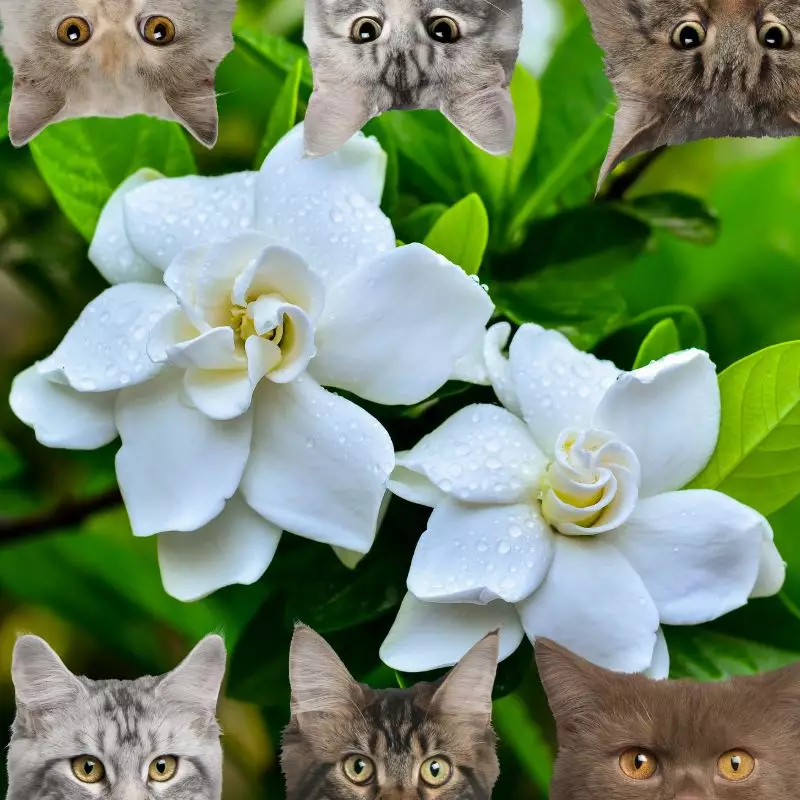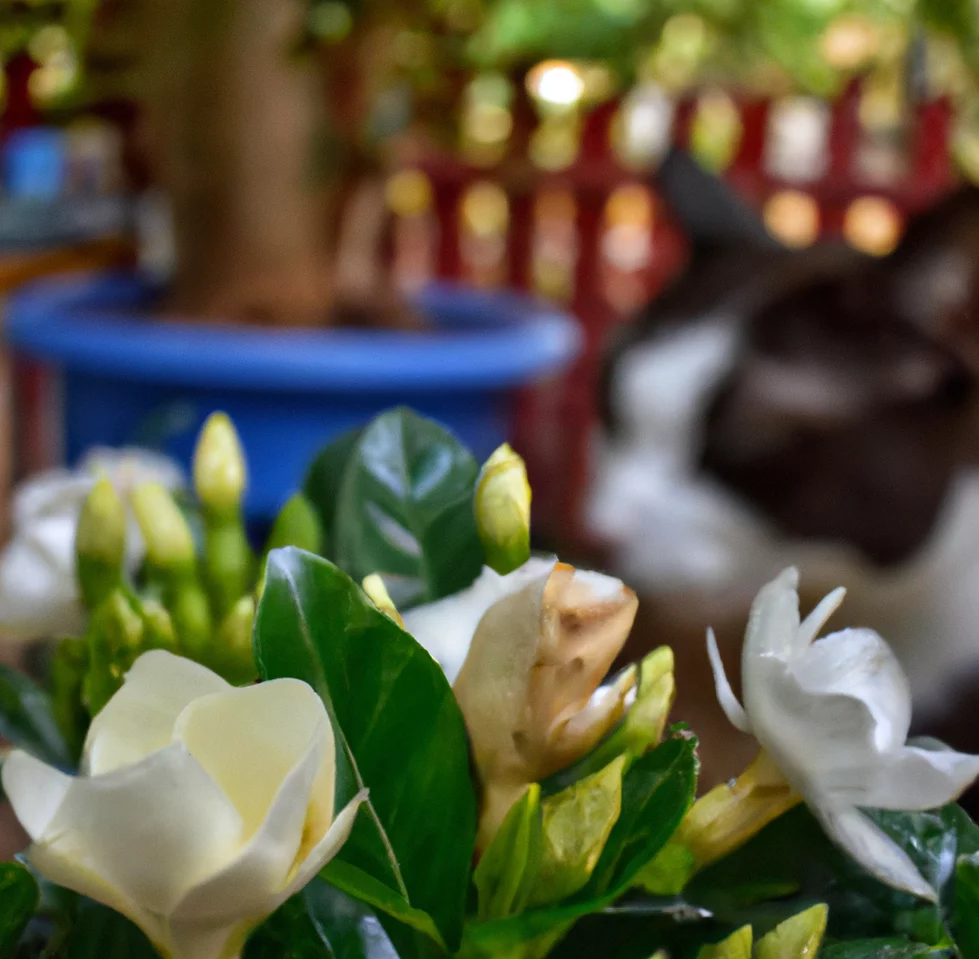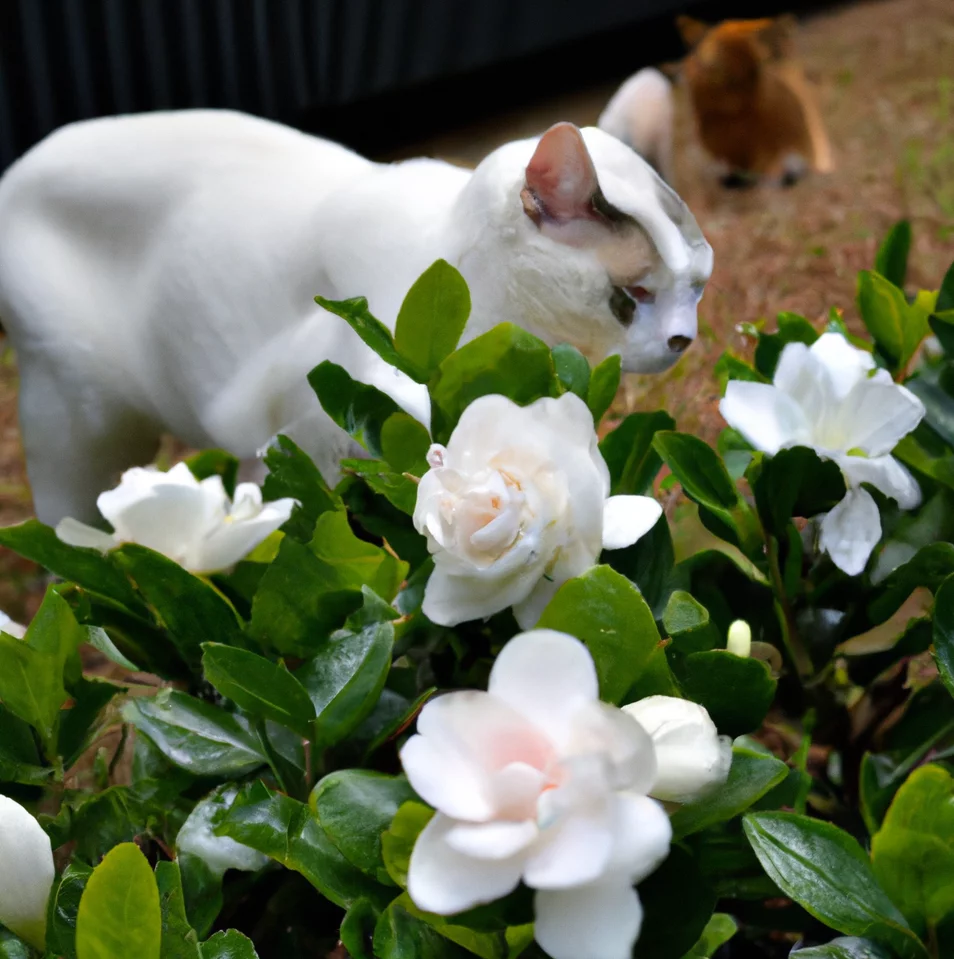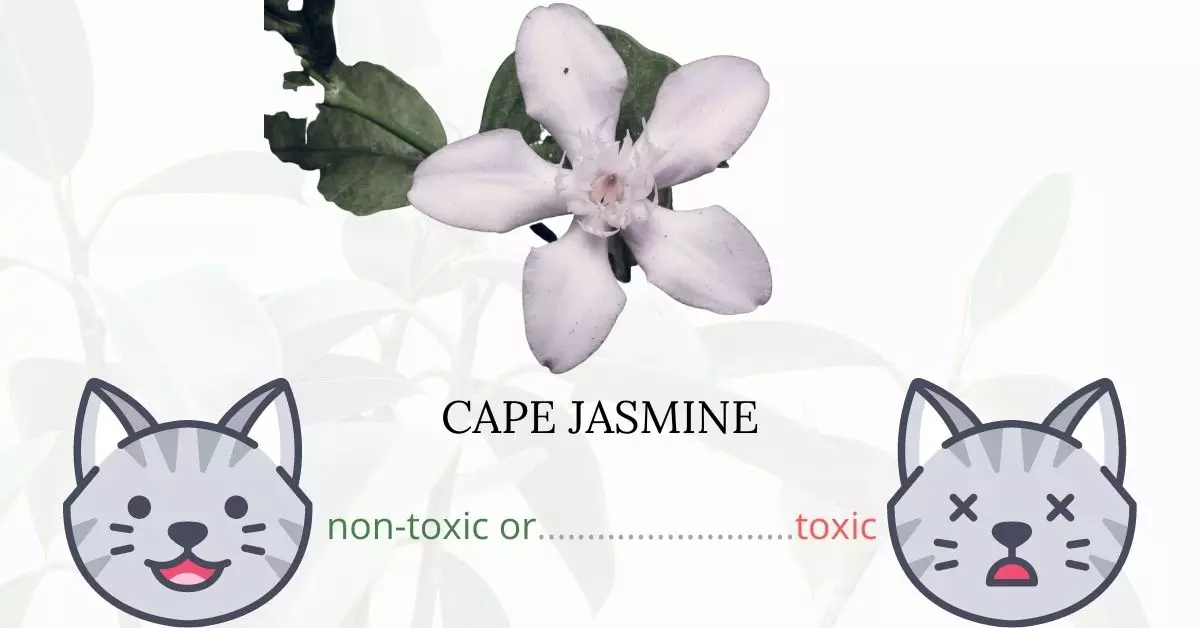Yes, Cape Jasmines, commonly known as Gardenias, are toxic to cats. This evergreen flowering plant contains compounds called gardenoside and geniposide, which are iridoid glycosides. When ingested, these compounds convert into alkaloids in the digestive system. Cats, being obligate carnivores, lack the necessary digestive enzymes to process these alkaloids, leading to adverse gastrointestinal reactions.
When a cat consumes Cape Jasmine or Gardenia, it may exhibit symptoms such as vomiting and diarrhea. It’s important to note that the toxicity levels of this plant can be influenced by the environment in which it’s grown.
This article is a product of collaborative efforts with a team of experienced DVMs (doctors of veterinary medicine). Their invaluable input ensures that we provide accurate and up-to-date information concerning the potential risks associated with various plants, especially Cape Jasmines in this context. In our research, we also referenced high-authority websites such as ASPCA and PetMD to guarantee the accuracy of every detail presented here. If you suspect your cat has ingested any part of the Cape Jasmine plant, it’s crucial to contact your veterinarian immediately.
Clinical Signs of Cape Jasmine or Gardenia Poisoning in Cats

When a cat comes into contact with or ingests Cape Jasmine, commonly known as Gardenia, it may exhibit specific clinical signs due to the plant’s toxic compounds. Understanding these signs and their underlying causes can help you take prompt action and ensure your feline friend receives the appropriate care.
- Vomiting: This is a common response when a cat ingests foreign or toxic substances. The presence of gardenoside and geniposide, which convert into alkaloids in the digestive system, triggers the cat’s body to try and expel the toxins. Since cats lack the enzymes to break down these alkaloids, their digestive system reacts by inducing vomiting.
- Diarrhea: Diarrhea is another way the feline body tries to rid itself of ingested toxins. The alkaloids from the plant irritate the gastrointestinal tract, leading to increased bowel movements as the body tries to expel them quickly.
- Hives on the skin: If a cat comes into direct contact with the plant, especially if it has sensitive skin or an allergic reaction, it might develop hives. This is the body’s inflammatory response to the irritants found in the plant, signaling that something is amiss.
While these symptoms might appear mild in some cases, they can be dangerous, especially if the cat has underlying health issues or if a large amount of the plant has been ingested. Always consult a veterinarian if you suspect your cat has been exposed to Cape Jasmine to ensure its safety and receive proper medical care.
First Aid and Treatment of Cape Jasmine or Gardenia Poisoning in Cats

Since the Cape Jasmine poisoning symptoms are not severe, most cats won’t need any special treatment. Your cat may be sent home to be observed until his or her symptoms subside. Hospital admission may be required if your cat has other health complications.
The vet may administer IV fluids and activated charcoal depending on the severity of your cat;s symptoms and the amount of Cape Jasmine that your cat has ingested.
Recovery from Cape Jasmine or Gardenia Poisoning in Cats

Recovery of your cat will be quick as long as immediate veterinary support care was provided. Once you get home, give your cat some time to rest as he or she may still be distressed due to the poisoning experience.
Prevention of Cape Jasmine or Gardenia Poisoning in Cats
Eliminate Cape Jasmines inside your house and make sure that you do not grow them in the yard where your cat may wander around and nibble on them. Keep your feline busy and comfortably happy indoors to lessen the chances of your cat straying far from your house.
If you love plants but have cats at home, check out these lists:





